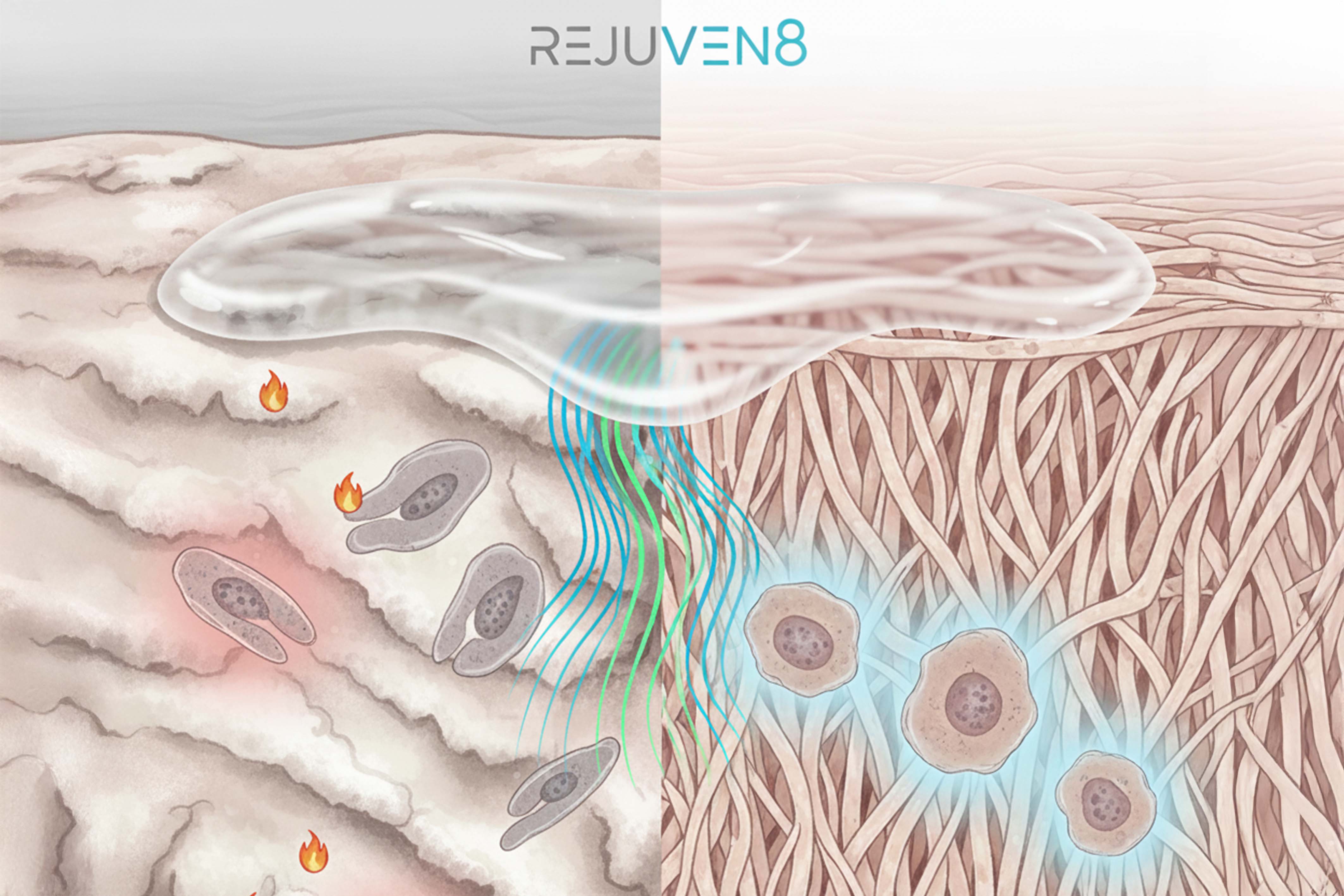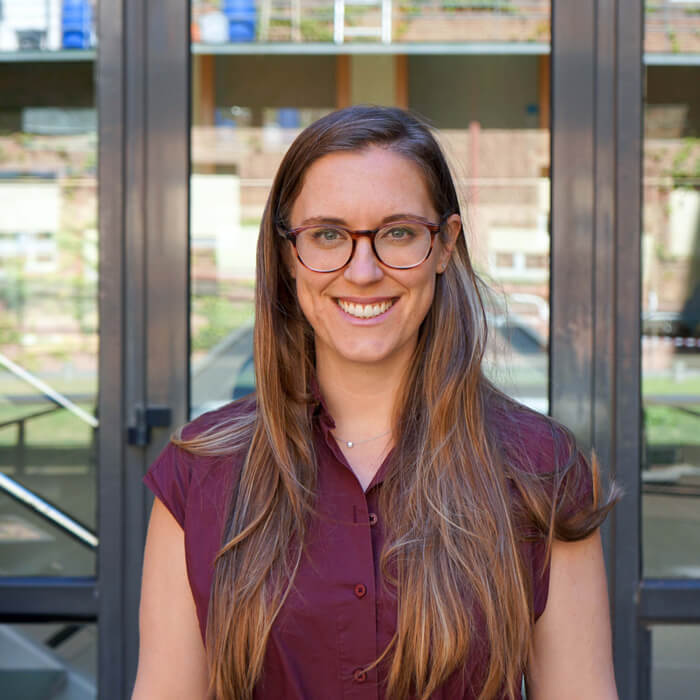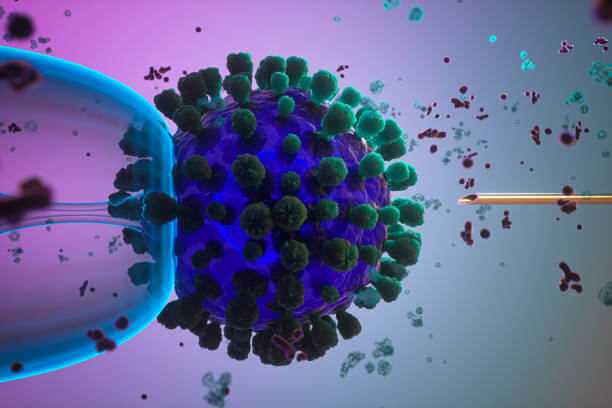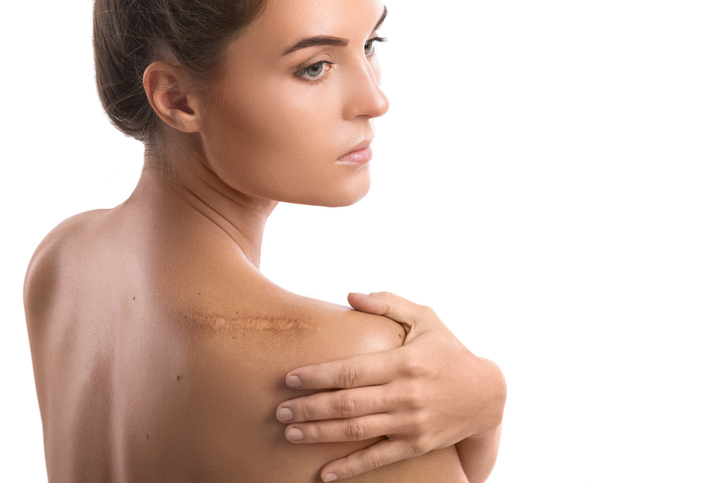Pathological fibrosis is an abnormal and excessive development of fibrous tissue or scar in any organ or tissue of the body as a result of chronic injury, inflammation, or disease. Currently, there is no treatment for fibrosis, possibly due to the lack of experimental models capable of reproducing the mechanical and biochemical environment of the cell system in scars. When fibrosis appears, fibroblasts – cells that make the mesh of the skin – can enter a state of fatigue or cellular aging (senescence). In this state, they release signals that harden and inflame the tissue, a situation that feeds the scar. Because of this, aging and fibrosis often go hand in hand.
New Therapies to Prevent Pathological Healing

Dr Núria Oliva Jorge, a researcher with the Materials Engineering Group (GEMAT) at IQS, works in the Tissue Engineering area of expertise, especially in the development of new bioadhesives that facilitate healthy skin healing. The focus of her research lies in understanding how skin cells interact with the extracellular matrix and, thus, being able to modulate wound healing and scarring. The bioadhesives her research develops work like a “smart bandage”: they hold the wound together and, at the same time, give physical and chemical clues to the cells so that they can heal in an orderly manner.
Within this context, Dr Oliva is now leading the REJUVEN8 project, which aims to develop innovative bioadhesives that promote wound healing without leaving scars. REJUVEN8 explores soft, breathable, and biocompatible materials that, without adding drugs, “talk” to cells through their elasticity and composition.
Solutions for dermal fibrosis
As a first proof of concept, Dr Oliva’s research is focused on the study of dermal fibrosis in order to demonstrate how new bioadhesives, applied in a dermal dressing, can modulate the gene expression of fibroblasts and, therefore, control the aging of the cells in contact with them to reverse dermal fibrosis and prevent scarring. In other words, the material seeks to “convince” fibroblasts to work the same as in young and healthy skin instead of continuing to build a rigid scar.
To explore and validate the role of bioadhesives in modulating dermal fibrosis and the aging of the cells in contact with them, Dr Oliva’s group will use their own models of healthy and fibrotic dermis. These models are mini-tissues of skin built in the laboratory with human cells and biocompatible gels in which the hardness and components can be adjusted to be able to mimic both healthy skin and skin with fibrosis to then observe how the cells behave. Then, the dressing is applied and the decrease in cellular aging gives a signal and measures whether the genes related to good healing are activated in the desired direction. It is also possible to evaluate visible changes, such as the amount and organization of the “mesh” that the cells form.
According to the results obtained in these first trials on dermal fibrosis, and once it has been demonstrated that these biomaterials can guide cells towards cleaner and more flexible healing, they could be applied in surgical wounds, burns, or other skin lesions, thus opening the door to new therapies to prevent and treat pathological scarring and heal cellular systems without using drugs.
Furthermore, this research in dermal fibrosis, as well as the knowledge derived from it, applied to other organs could make it possible to advance in the future research of other diseases, such as diabetes or Alzheimer’s, which share the mechanisms of aging and tissue hardening, thus inspiring new avenues of study in these fields.
The REJUVEN8 project receives funding from the State Plan 2024 – Knowledge Generation from the Ministry of Science, Innovation, and Universities/State Research Agency.













